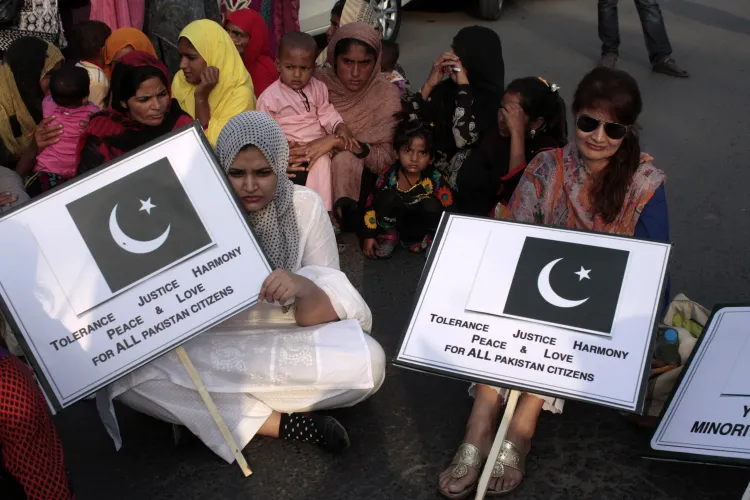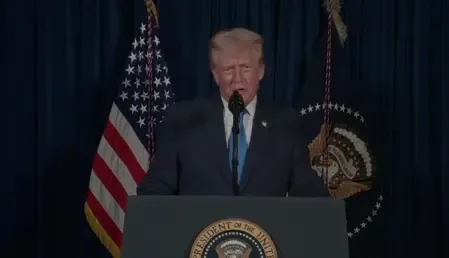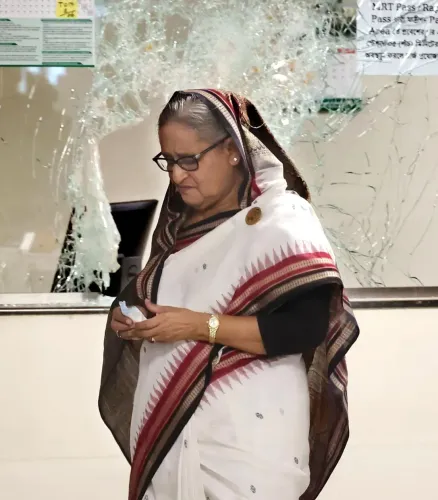What Happened to Nabil Masih, the Christian Youth Who Faced Injustice?

Synopsis
Key Takeaways
- Nabil Masih suffered immense injustice due to blasphemy laws.
- His case highlights systemic issues facing minorities in Pakistan.
- There is a need for urgent reform in the legal system.
- The treatment of vulnerable populations raises serious ethical questions.
- Institutional neglect can lead to tragic outcomes.
Islamabad, Aug 8 (NationPress) A prominent group advocating for minority rights has highlighted the tragic death of a young individual from the Christian community in Pakistan, who suffered years of confinement due to the nation's notorious blasphemy laws.
Nabil Masih, who was only 25 years old, met a quiet and painful end to his life. His narrative, filled with injustice, alienation, and resilience, will not be forgotten. From a 16-year-old in a modest Pakistani town to a representation of systemic oppression, his experiences reveal the harsh realities of Pakistan's blasphemy laws and the severe impacts they have on the nation’s most vulnerable populations.
The rights group reported that Nabil was detained on September 18, 2016, in Phoolnagar, close to the city of Kasur in Punjab province. He faced accusations of posting a blasphemous image on social media, an allegation he consistently denied.
It was noted that instead of being treated as a minor needing protection, Nabil was treated as a criminal by Pakistani authorities. The rights body emphasized that the mere accusation, irrespective of its validity, was enough to devastate his life.
According to the VOPM, despite his young age, Nabil was charged under Sections 295 and 295-A of the Pakistan Penal Code—laws intended to uphold religious reverence but frequently misused against minorities. He was denied bail, imprisoned for years without a trial, and in 2018, received a 10-year prison sentence.
“Within the confines of prison, Nabil faced not only physical and psychological abuse but also profound isolation. He lived under the persistent threat of violence from both inmates and guards. His health deteriorated, suffering from painful, untreated tumors. It wasn't until March 2021, after almost five years in custody, that the Lahore High Court granted him bail on medical grounds. Unfortunately, freedom arrived too late,” remarked the rights organization.
“Nabil underwent surgery for his tumors in May 2021 but faced a relapse in early 2025. By June, he was diagnosed with acute Hepatitis E, exacerbated by years of neglect and deteriorating health. He was hospitalized in Lahore, where his condition showed brief signs of improvement before taking a turn for the worse. By mid-July, he lost the ability to speak or walk. On July 31, Nabil succumbed to his ailments—a young life shattered by a system that never permitted him to truly exist,” the statement elaborated.
The VOPM expressed that Nabil's case is not an isolated event but indicative of a troubling trend where blasphemy laws are weaponized against minorities, used to settle personal grievances, and incite mob violence. In this scenario, justice is not impartial but entirely absent.
Raising concerns, the rights organization called for immediate responses from Pakistani authorities regarding the treatment of children as adversaries of faith, the sluggish pace of the courts when lives are at stake, and the transformation of protective laws into instruments of terror.
Nabil Masih did not just succumb to illness. He perished from neglect, from institutional brutality, and from a nation's silence,” stated the VOPM.









